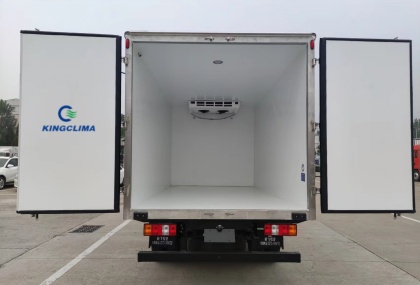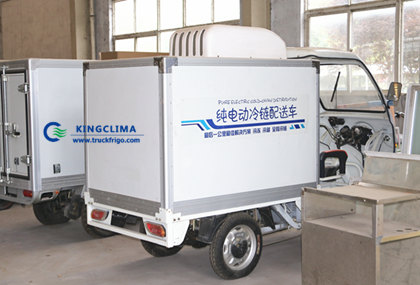Main Points for the Use of Truck Refrigeration Units
Proper operation and care of truck refrigeration units are critical for maintaining cargo quality, reducing costs, and prolonging the system's lifespan. Below are the main points to consider:
1. Pre-Operation Checks
Inspect the Unit: Check the refrigeration unit for visible damage, leaks, or loose connections before use.
Verify Refrigerant Levels: Ensure the refrigerant is at the correct level for optimal performance.
Clean Components: Inspect and clean the condenser, evaporator, and air filters to ensure efficient airflow and cooling.
Check Electrical Connections: Ensure the electrical wiring is secure and free from corrosion or damage.
Temperature Setting: Set the temperature to match the specific requirements of the cargo (e.g., frozen goods vs. fresh produce).
2. Loading Practices
Pre-Cool the Cargo Area: Run the refrigeration unit to cool the cargo space before loading to ensure immediate temperature stabilization.
Correct Cargo Placement:
Leave space between items and the walls to allow proper airflow.
Avoid overloading, as it may block vents and disrupt cooling efficiency.
Use Insulation and Curtains: Ensure the cargo space is well-insulated and use strip curtains to minimize heat exchange when doors are opened.
Load Temperature: Only load pre-cooled cargo; the refrigeration unit is designed to maintain, not reduce, product temperature.

3. During Operation
Monitor Temperature:
Regularly check temperature readings during transit to ensure they remain within the required range.
Use data loggers for automated and accurate monitoring.
Minimize Door Openings: Keep doors closed as much as possible to maintain consistent cooling and reduce system strain.
Driving Considerations:
Avoid sudden braking or sharp turns that can disrupt cargo placement and airflow.
Drive efficiently to reduce vibrations and minimize wear on the refrigeration system.
4. Post-Operation Practices
Clean the Unit: Remove debris and clean the interior of the cargo area and refrigeration system components after use.
Inspect for Issues: Check for signs of wear, unusual noises, or leaks that may indicate maintenance needs.
Defrost the Unit: Run a defrost cycle periodically to remove ice buildup on the evaporator coil, ensuring optimal cooling.
Turn Off Properly: Shut down the unit correctly as per the manufacturer’s instructions to avoid sudden pressure changes or damage.
5. Maintenance and Repairs
Follow a Maintenance Schedule:
Regularly service the refrigeration unit, including refrigerant refills, filter replacements, and belt inspections.
Clean the condenser coil to maintain heat exchange efficiency.
Use Genuine Parts: Replace damaged parts with manufacturer-recommended components to ensure compatibility and performance.
Professional Repairs: Engage certified technicians for complex repairs to avoid further damage or safety hazards.

6. Operational Guidelines
Avoid Overloading: Overloading can strain the refrigeration unit and result in uneven cooling or system failure.
Climate Adjustments:
Monitor and adjust settings based on external weather conditions (e.g., higher cooling requirements in hot climates).
Use additional insulation in extreme temperatures.
Emergency Protocols: Have a contingency plan for system failures, including backup cooling options or emergency transfers to another vehicle.
7. Environmental Considerations
Avoid Idling for Long Periods: Use efficient refrigeration systems that minimize fuel consumption and emissions.
Check for Eco-Friendly Refrigerants: Use units with refrigerants compliant with environmental regulations (e.g., R134a or R1234yf).
Reduce Energy Usage: Optimize airflow and cargo placement to minimize the energy demand on the refrigeration unit.
8. Training and Compliance
Train Drivers and Staff: Ensure all personnel involved in handling and transporting refrigerated cargo understand how to operate and care for the unit.
Compliance with Standards: Adhere to industry and government regulations for food safety, pharmaceutical transport, or other temperature-sensitive goods.
Conclusion
The proper use of truck refrigeration units requires attention to detail, from pre-loading preparation to post-operation maintenance. Following these main points ensures efficient operation, protects cargo integrity, reduces operational costs, and extends the life of the refrigeration system. As a professional truck refrigeration units supplier, Kingclima offer 7*24 professional and patient help, if you need, please contact us at anytime.




